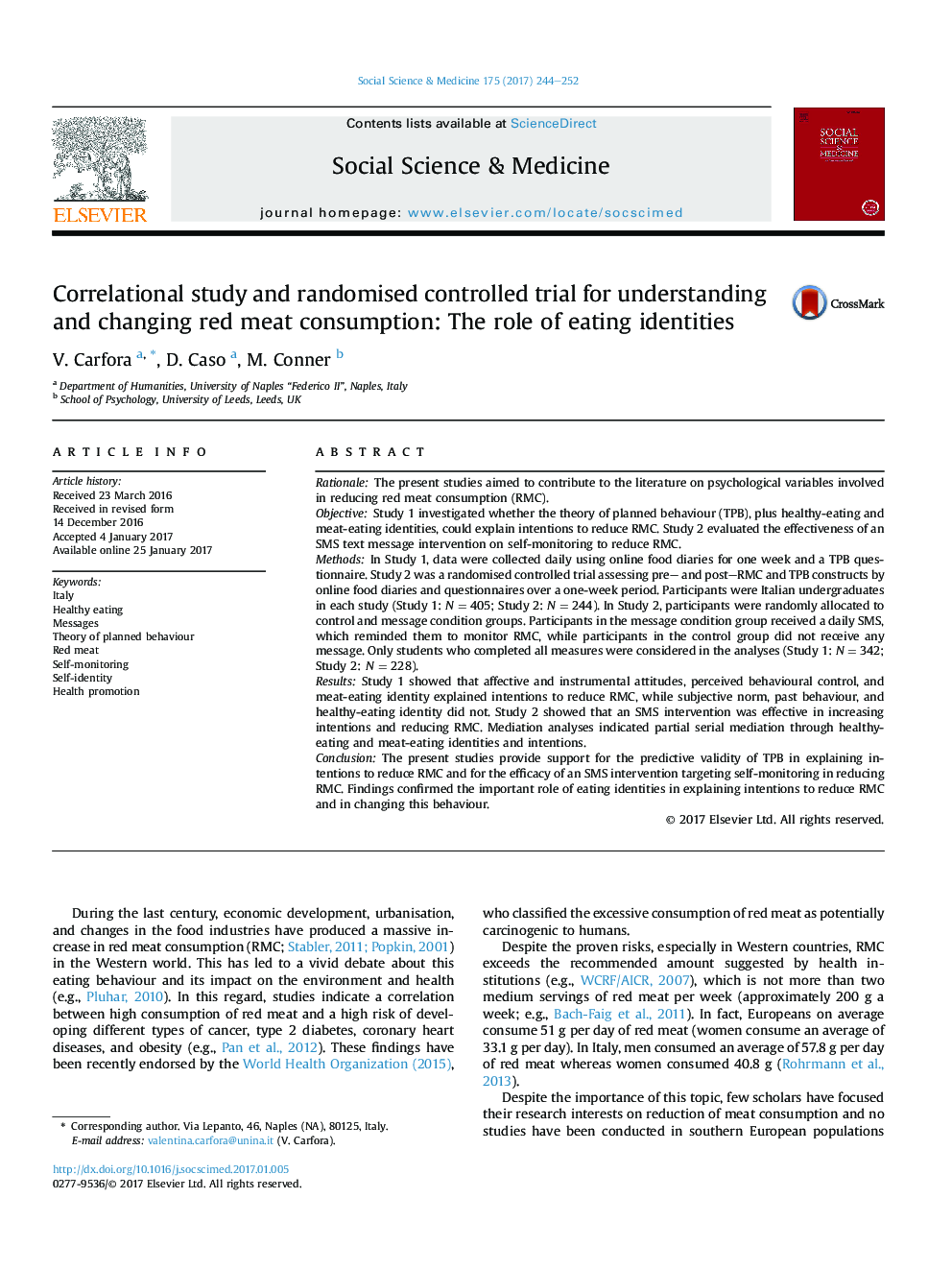| کد مقاله | کد نشریه | سال انتشار | مقاله انگلیسی | نسخه تمام متن |
|---|---|---|---|---|
| 5046699 | 1475994 | 2017 | 9 صفحه PDF | دانلود رایگان |
- Study 1 (S1) aimed to predict intentions to reduce red meat consumption.
- S1 added meat- and healthy-eating identities to the theory of planned behaviour.
- Attitude, perceived behavioural control, meat-eating identities predicted intention.
- Study 2 (S2) evaluated a message intervention for reducing red meat intake.
- S2's intervention effects on behaviour hinged on changes in identities and intentions.
RationaleThe present studies aimed to contribute to the literature on psychological variables involved in reducing red meat consumption (RMC).ObjectiveStudy 1 investigated whether the theory of planned behaviour (TPB), plus healthy-eating and meat-eating identities, could explain intentions to reduce RMC. Study 2 evaluated the effectiveness of an SMS text message intervention on self-monitoring to reduce RMC.MethodsIn Study 1, data were collected daily using online food diaries for one week and a TPB questionnaire. Study 2 was a randomised controlled trial assessing pre- and post-RMC and TPB constructs by online food diaries and questionnaires over a one-week period. Participants were Italian undergraduates in each study (Study 1: NÂ =Â 405; Study 2: NÂ =Â 244). In Study 2, participants were randomly allocated to control and message condition groups. Participants in the message condition group received a daily SMS, which reminded them to monitor RMC, while participants in the control group did not receive any message. Only students who completed all measures were considered in the analyses (Study 1: NÂ =Â 342; Study 2: NÂ =Â 228).ResultsStudy 1 showed that affective and instrumental attitudes, perceived behavioural control, and meat-eating identity explained intentions to reduce RMC, while subjective norm, past behaviour, and healthy-eating identity did not. Study 2 showed that an SMS intervention was effective in increasing intentions and reducing RMC. Mediation analyses indicated partial serial mediation through healthy-eating and meat-eating identities and intentions.ConclusionThe present studies provide support for the predictive validity of TPB in explaining intentions to reduce RMC and for the efficacy of an SMS intervention targeting self-monitoring in reducing RMC. Findings confirmed the important role of eating identities in explaining intentions to reduce RMC and in changing this behaviour.
Journal: Social Science & Medicine - Volume 175, February 2017, Pages 244-252
